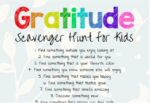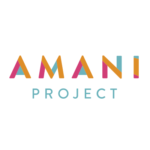Physical & Mental Health
- Depression/Suicide (35)
- Emotional Intelligence (13)
- Health Care Resources for Youth (35)
- Mental Health (81)
- Mindfulness (29)
- Nutrition (52)
- Obesity Prevention (35)
- Resiliency (14)
- Social-Emotional Learning (SEL) (76)
- Trauma-Informed Care (47)
Use these Arthur activities to help children understand themselves and those around them. Topics include self-esteem, understanding others, and cultural diversity.
Engage students with Xavier Riddle and the Secret Museum, a PBS KIDS series based on the Ordinary People Change the World books by Brad Meltzer and Christopher Eliopoulos. The show follows the adventures of Xavier Riddle, his sister Yadina, and their friend Brad as they travel back in time to meet real life historical figures when they were kids.
Use these video clips, teaching tips, and historical figure biosketches to support students’ social-emotional, literacy, and social studies skills.
This scavenger hunt can be used by anyone to search for things that they are grateful for.
The Yale Center for Emotional Intelligence uses the power of emotions to create a more healthy, effective and compassionate society.
Think Equal is a nonprofit that offers social and emotional learning programming for children ages 3 to 6.
“Teaching Emotional Intelligence to Teens and Students” is an article published by PositivePsychology.com about effective techniques to teach teenage students emotional intelligence.
Six Seconds researches and shares scientific, global, transformational tools & methods to support the goal of a billion people practicing the skills of emotional intelligence.
Kindness in the Classroom is a multi-part video series designed to give educators insight into the positive impacts of teaching mindfulness in a classroom setting. The series focuses on implementing the Kindness Curriculum; a free 24-lesson mindfulness guide designed for pre-k and kindergarten classrooms, researched and developed by the Center for Healthy Minds at UW-Madison.
Amani Project is a family of local organizations that teach young people 8-14 years old music-making and emotional intelligence through a do-it-yourself curriculum.
Together, school districts and educators can help students develop social-emotional learning competencies by intentionally teaching these skills, by implementing educational neuroscience learning strategies, by practicing culturally responsive classroom-management, and by approaching this work with a growth mindset. The goals of this toolkit are (1) To increase educators’ awareness, knowledge, and skills regarding social-emotional learning (2) To promote collaboration between educators, community, and families to address the social-emotional learning competency development of all students (3) To enhance knowledge of educational practices that promote social-emotional learning competency development (4) To provide tools and resources to educators to help improve students’ social-emotional skills.
Through the unique No Barriers Life framework, students develop the mindset and tools to break through barriers, unleash individual and collective potential, and have a positive impact on the world. No Barriers Ignite is a free curriculum that introduces students to the No Barriers Life and engages them more deeply in the first life element, Vision. In just six 30-minute lessons, students explore their own identity and values to create a personal Vision, then collaborate with peers to take positive community action.
The following resources offer tips for families including age-appropriate responses to common questions, a guide to self-care, and activities for young children experiencing social distancing.








